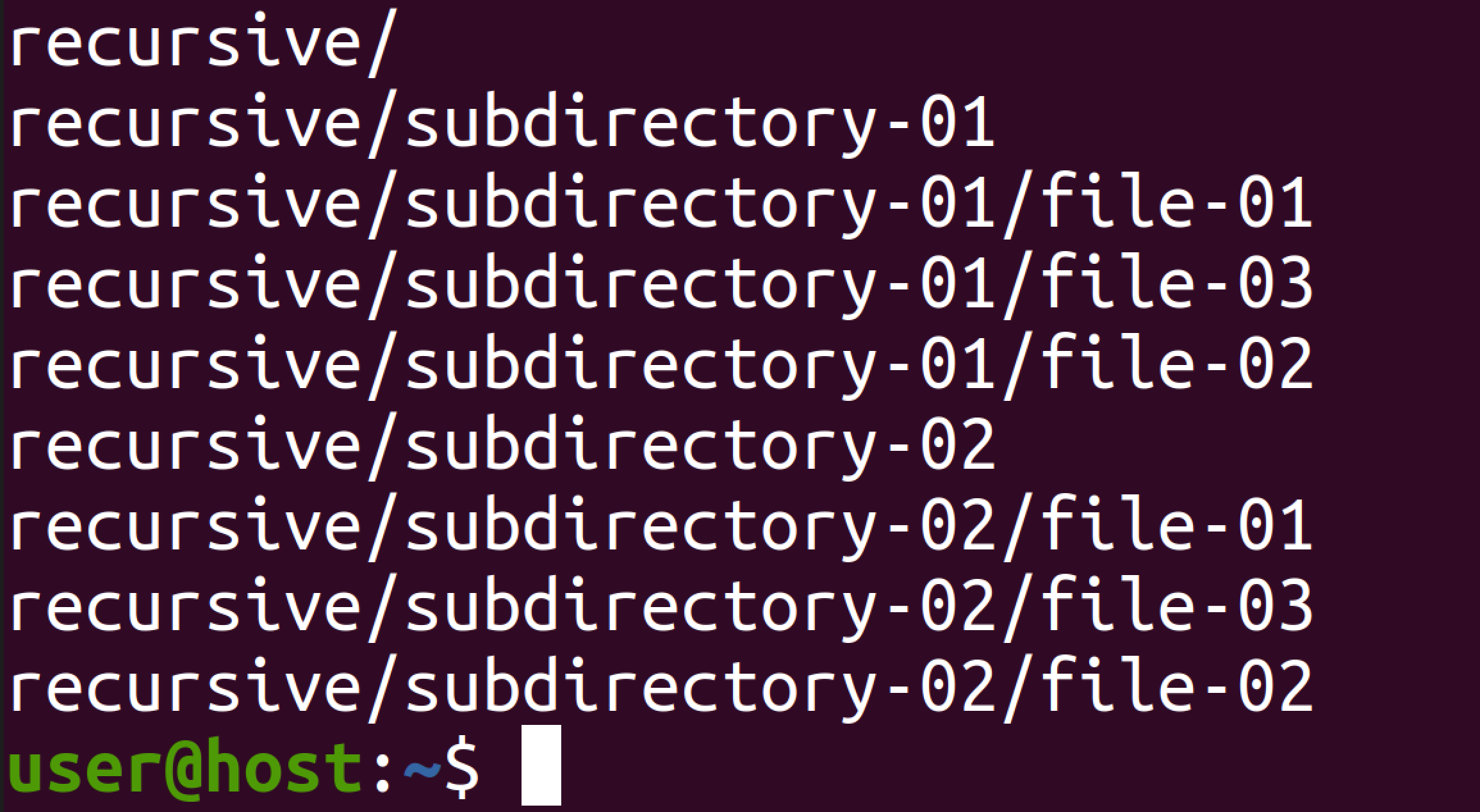

- #Bash search for text in files recursively how to#
- #Bash search for text in files recursively windows#
As plink said, use grep -r -o -i 'yourstring' (or. But, like most commands, you need to put the filename (s) at the end of the command, so your example would just sit there and wait for the filename. The biggest issue was that they require dependencies such as. If you wanted to find whole words, you would need to create a regular expression to tell it that.
#Bash search for text in files recursively windows#
There are also various Windows binaries which can be used from a standard command prompt however I had limited luck with each one. dir -Recurse | Select-String -pattern įor example: dir -Recurse | Select-String -pattern "Find Me"Īs you can see, its nowhere near the memorable Linux command grep -r but at least its now possible go get similar behaviour in a Windows environment. src/.js) into their rightful place within the destination directory. Is there a simple bash function I can use to copy all files, including files specified by wildcard (e.g. Use the below command inside the directory you would like to perform the ‘grep’ and change to match what you would like to match. but instead, both of the files are copied into /tmp/package. With the introduction of PowerShell, Windows has given us the grep functionality albeit with a much less finesse than the Linux equivalent. You have to pipe multiple commands together one command to transverse the directories, and one command to look for the pattern within each file found. If you want to search for the string without caring about upper or lower case.

The leading dot, says grep to start 'here' and the -r option to go recursively for all folders. That command should be entered in the folder where you want to start the search. The simplest usage for for loop is over given file names. commandN done Loop Over Given File Names. for VAR in (BASHCOMMAND) do command1 VAR command2 command3. In this syntax, we expect that the (BASHCOMMAND) will return a list where we will iterate over this list. Import .BasicFileAttributes įiles.Not having grep, more specifically grep -r, is challenging at best and almost reason enough to avoid the platform entirely. To search all files recursively in all folders of the site, I used grep. We can use bash commands output as items for iterate. And we continue to walk the file tree by returning FileVisitResult.CONTINUE.

txt extension and print the file name when the extension matches. In the left pane you can see the number of results found in the corresponding files, and in the right pane, the text containing the searched words. Use the arrows at the bottom to navigate in the results.

In this method we check if the file ends with. Type your search terms in the Search box and click the Find button. txt) we override the visitFile() defined by the SimpleFileVisitor. To get all the text files (files end with. Here we’ll create a file visitor call FindTextFilesVisitor which extend the. And the second parameter is the file visitor to invoke for each file. The first parameter is the starting file, in this example we’ll start from drive F:/Temp. Here, the -r or -R flag recursively searches through the all subdirectories inside the specified directory.
#Bash search for text in files recursively how to#
In this example you’ll learn how to use the Files.walkFileTree() to walk through file tree. Now to search and find all files for a given text string in a Linux terminal, you can run the following command.


 0 kommentar(er)
0 kommentar(er)
